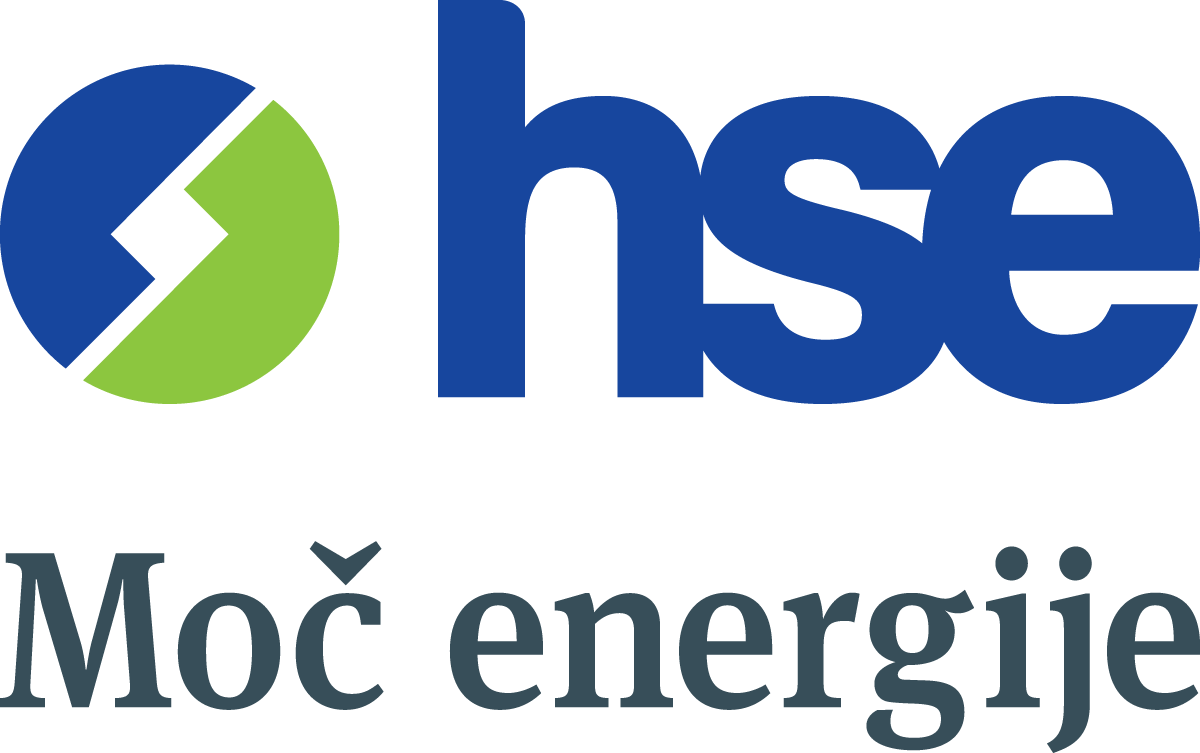Minister of the Environment and Spatial Planning Andrej Vizjak has signed, along with the chief executive officer of Holding Slovenske Elektrarne (HSE) Stojan Nikolič and the chief operating officers of HSE Mirko Marinčič and Viktor Vračar, the Concession contract for the use of water for the production of electricity on segments of the water body of the Sava River from Ježica to Suhadol. The minister also signed the Agreements with local communities on the manner of implementation of the concession contract with the mayors of the Municipalities of Zagorje ob Savi (Matjaž Švagan), Laško (Franci Zdolšek), Trbovlje (Jasna Gabrič), Hrastnik (Marko Funkl) and Litija (Franci Rokavec).
By adopting a Long-Term Climate Strategy, whose draft has until recently been in public consultation, Slovenia is setting a clear objective of reaching climate neutrality by 2050. In order to reach this objective, people’s habits need to be changed, the economy restructured and modernised, and significant investments made in developing renewable energy sources.
As the effort is made to decarbonise Slovenia, the need for electricity will be increasing in the coming years. The reason for this is electrification of sectors which are currently largely related to the use of fossil fuels, particularly transport and heating. The increased consumption and abandoning of fossil fuels means that we will need either to import clean electricity or ensure it by building new, environmentally friendly power plants.
Given its natural resources, Slovenia has great hydro power potential, which would enable decarbonisation, greater energy reliability, green jobs and balanced regional development, with consideration of nature protection measures. By utilising the water power potential of the central Sava, we may secure the use of environmentally friendly and renewable sources of energy in the future, which may efficiently reduce greenhouse gas emissions.
After the signing, Minister Andrej Vizjak thanked all local communities, the HSE management and all who have participated in the project. “This is a great day for the Slovenian economy and a great day for the transition to renewable sources of energy.” He stressed that it was a project which would also significantly contribute to the development of local communities.
Stojan Nikolić, the chief executive officer of HSE: “Today is the day for which we have been waiting for fifteen years. But we must not stop here. We needed fifteen years for this first step. We are only starting to make major and key steps. Congratulations to the team, which has been working hard over the last three years on coordinating the same text with three different governments. Finally, we have a minister who understands the potential of hydro power. He has also proven that everything is possible if there is a will. I hope that this political will is here to stay. Today we are making a symbolic transition from coal to renewable sources. With an output of 350 GWh, the hydro power plants in Zasavje are to replace half (50%) of the electricity production from the former thermal power plant which operated at this location (TET). By constructing the entire chain, HSE will account for a 20% increase (1,000 GWh) in the production of electricity from renewable sources connected to the transmission network. It is a great day, and it will be an even greater day when we lay the first foundation stone.”
“We are happy that things have started moving after years of effort and numerous meetings. We hope and believe that the Municipality of Trbovlje and the entire Zasavje will gain a lot from the construction project of hydro power plants on the central Sava from the economic aspect, and that the project will positively affect the development of our town,” said the Mayor of the Municipality of Trbovlje Jasna Gabrič.
The Mayor of the Municipality Zagorje ob Savi Matjaž Švagan emphasised that “Zagorje does not want to be just a fellow passenger in the new success story in Zasavje, but we intend to actively participate in it. So far, we have connected our development opportunities to our valleys, hills and people. From now on, thanks to the HSE concessionaire and Environment Minister Andrej Vizjak and the government, we will also connect them to the central Sava canyon. The first step was made today. Hard work is ahead of us in ensuring that the projects sited in our environment are compliant with all environmental standards, among other things.”
“I am happy that we are signing an agreement which looks to secure energy from renewable sources. The Municipality of Laško strives for the supply of electricity from renewable sources. We also want to become an energy self-sufficient local community,” said the Mayor of the Municipality of Laško Franc Zdolšek.
The Mayor of the Municipality of Hrastnik Marko Funkl added: “After fourteen years of the coordination of the concession contract, today’s signing is a major step forward. As a local community, we expect and believe that, by joining forces, we will realise all commitments from the list of projects and that the accompanying infrastructure will be of great added value for the residents of Hrastnik. It is of key importance for our municipality that we get modern road connections between Hrastnik and Zidani Most and between Hrastnik, Podkraj and Radeče, and that the plan for a kayak centre of national importance is realised.”
The Mayor of the Municipality of Litija Franci Rokavec said that the “signing of the concession agreement and of the Agreement on cooperation with municipalities in the construction of hydro power plants is finally an opportunity to establish development priorities in the Central Sava Valley and in the Litija area in the construction of infrastructure and siting of hydro power plants based on economic and environmental standards.”
Hydro power as clean energy from renewable sources
Considering the average annual discharge of the Sava River in a 50-year hydrological period (1961-2010), the total potential energy of the body of water which is the subject of this concession is 1,105 GWh/year. It will be possible to exercise the water right in the area covered by the concession only after an individual hydro power plant is finalised, when the concessionaire will also be obliged to pay the concession fee, which in accordance with the relevant decree is divided between the state and municipalities. The concession provider signs this concession contract with the purpose of ensuring that efficient and renewable sources of electricity are used in Slovenia to the greatest extent possible and to consequently contribute to reducing greenhouse gas emissions and mitigating climate change, while also taking into account other environmental and water management goals. Along with the necessary development works, flood protection of the broader area of the central Sava will also be ensured.
After 16 years of negotiations, the signing of the concession contract and agreement with local communities enables the expert procedures of environmental impact assessments and siting of possible new hydro power plants on the central Sava to start. The project is important for the local environment, for Zasavje and for the whole of Slovenia. The decision to build new hydro power plants to provide clean energy from renewable sources will be taken only after environmental impact assessments have been made. Local communities and organisations are invited to participate as partners in compiling a list of the expert groundwork and studies which need to be made prior to a decision to install a hydro power plant.
Concession contract
The concession contract defines in particular the essential content for the continuation of the procedures of siting of hydro power plants (including mutual rights and obligations related to the exercise of the water right; duration of the water right – 50 years; measures for preventing deterioration of the state of waters and preventing damage due to the occurrence of extraordinary events, and for providing flood protection), with certain elements of the concession relationship that are not defined or known at the moment (such as, for example, the number and exact location of hydro power plants; necessary insurance related to the construction of power plants and exercise of the water right). These will be defined with an annex after the siting. It will be possible to exercise the water right in the area covered by the concession only after an individual hydro power plant is finalised, when the concessionaire will also be obliged to pay the concession fee, which in accordance with the relevant decree is divided between the state and the municipalities in the area of influence of the concession.
Agreement with local communities
The agreement is concluded in order to regulate more precisely the mutual rights and obligations of its signatories in relation to the manner of the implementation of the concession for the use of water for the production of electricity on the segment of the water body of the Sava River from Ježica to Suhadol, and to define the rules of mutual cooperation, information and coordination so that the siting, construction of energy facilities and devices and state and local infrastructure in the area, and the subsequent exercise of the water right is efficient and undisrupted, with consideration of the provisions of the valid legislation, concession act, concession contract and infrastructure development programme. The agreement is in a dependent relationship with the concession contract.
The appendix to the agreement contains a list of projects for the development of state and local infrastructure in the territory of the municipalities that are signatories to the agreement, expert groundwork for, and other information related to, these projects, and is an integral part of the agreement. Individual projects will be implemented simultaneously with the construction of the hydro power plants and accompanying infrastructure, as in the majority of cases these are investments which have content that is connected with the construction of energy and water infrastructure, so it is sensible to implement them at the same time.







